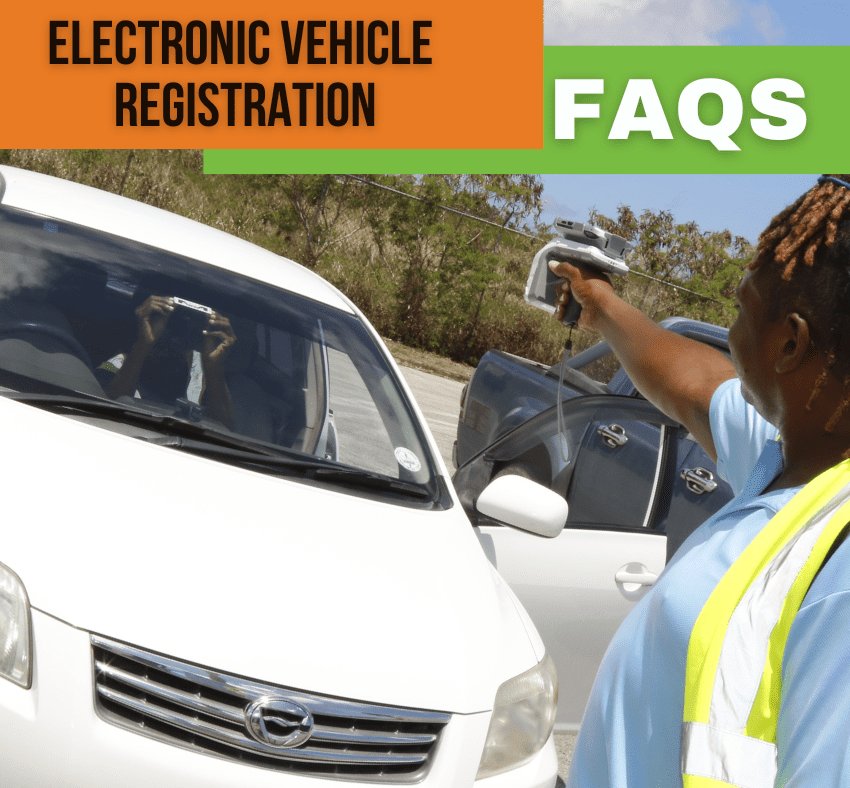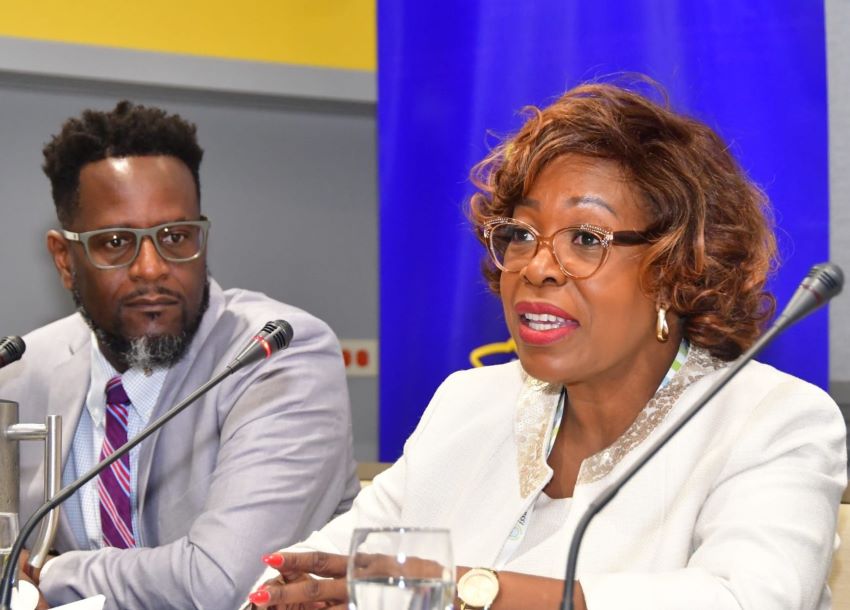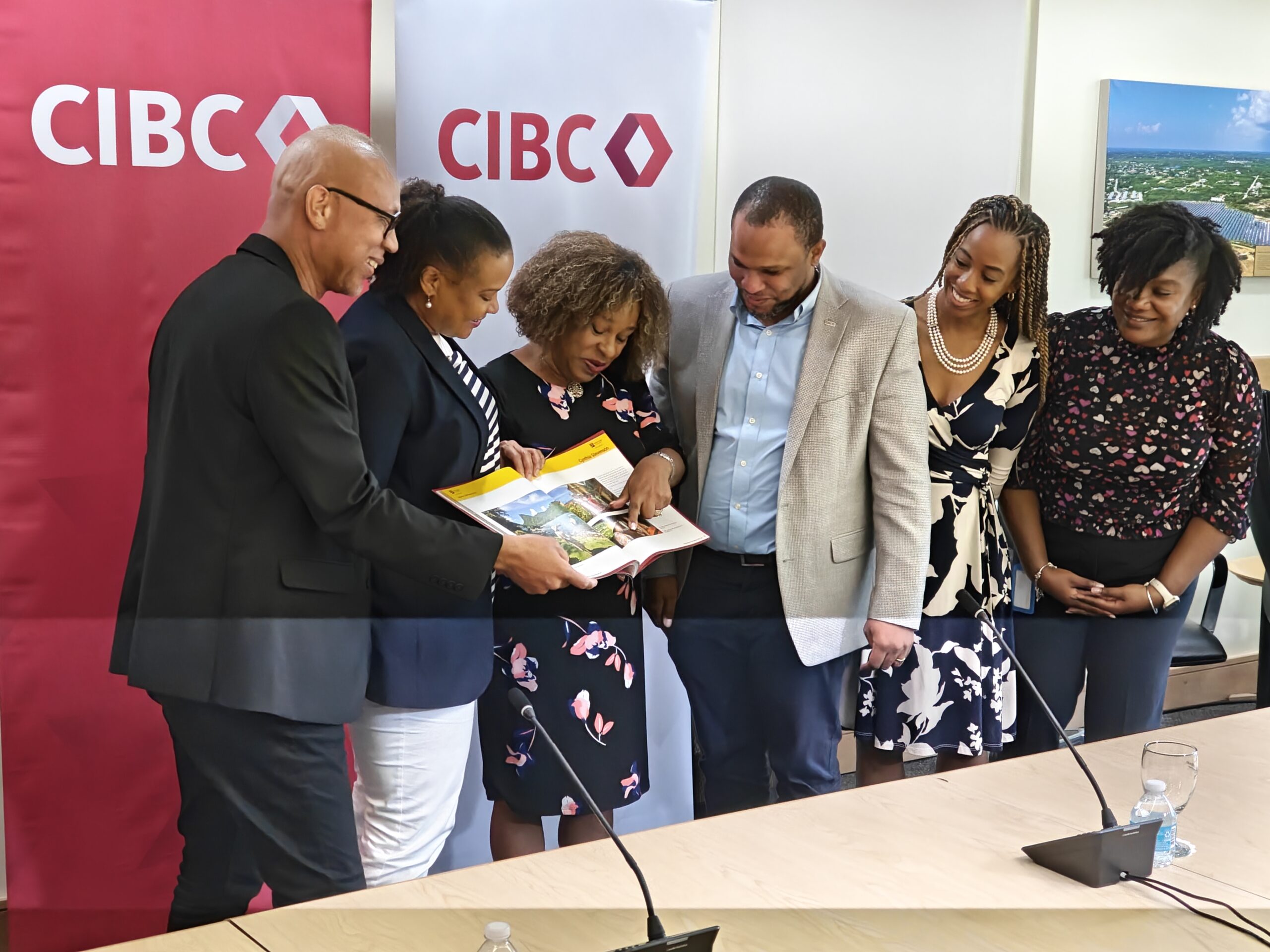QUESTION ONE: What is the Electronic Vehicle Registration (EVR) system?
Government is transitioning from a manual vehicle registration system to an electronic one. The Electronic Vehicle Registration (EVR) system is the new process Government is using to monitor the registration and insurance compliance of vehicles driving on the island’s roads.
A radio frequency identification sticker, known as an RFID tag, will be placed on your windshield as proof that your vehicle is legally registered with the Barbados Licensing Authority, and that your insurance is up to date.
There is NO cost for vehicle owners to get the EVR process done.
QUESTION TWO: What is the radio frequency identification (RFID) tag?
- The RFID tag is an electromagnetic sticker that will be placed on your vehicle’s windshield when you complete your EVR process.
- Your name, address, vehicle registration, chassis and engine numbers, and insurance status will be readable via the RFID tag only by EVR cameras at gantries and poles, and police hand-held scanners when they become operational.
- It provides proof your vehicle is registered and insured to be on the roads.
- The RFID tag can last up to ten (10) years.
- It is tamper-resistant, so if it is removed or damaged you will need to have it replaced.
- If you sell your vehicle, the RFID tag is transferable to the new owner and your information will be removed from that tag.
QUESTION THREE: Where can I go to have my vehicle tagged with the EVR?
There are three EVR Centres you can visit.
- Oistins car park, behind Granny’s Restaurant, Oistins, Christ Church
- National Cultural Foundation car park, West Terrace, St. James
- Garfield Sobers Sports Complex, Wildey, St. Michael (Gymnasium car park)
EVR Centres are open Sunday to Saturday from 8:30 a.m. to 4:00 p.m.
QUESTION FOUR: What documents do I need to submit to complete the EVR process?
Private vehicle owners will need to submit a printed copy of the following documents to the EVR Centre:
- Proof of insurance
- Proof of address (utility bill, bank, or credit union statement)
- Your identification (ID) card, valid driver’s licence, or a valid form of picture ID.
If you do not have proof of address, a person living with you will need to send a letter verifying your occupancy at that residence. That person will also need to send their ID or valid form of picture identification. That person is liable for the information they provide as being truthful.
If your vehicles are company owned, you will need to submit a printed copy of the following documents:
- Company documents issued by Corporate Affairs and Intellectual Property Office (CAIPO)
- Proof of insurance (certificate or cover note)
- List of vehicles owned by the company & their registration numbers
QUESTION FIVE: Can someone register and have the vehicle tagged on my behalf?
Yes. They can register the vehicle on your behalf, but they must bring their ID, a copy of yours, and the other documentation requested above. That person is responsible for confirming your identity on your behalf and is liable.
QUESTION SIX: Who should get their vehicles tagged?
All vehicles will eventually need to be registered with the EVR system. Initially, emergency and government-owned vehicles, as well as public service vehicles, were given the opportunity to get tagged under different phases of the pilot programme.
While some of these vehicles are still being done, however, some owners of private or company vehicles have opted to “get a head-start” or “beat the rush” before the EVR system is fully implemented.
Therefore, persons who wish to have their vehicles tagged may visit an EVR Centre of their choice to complete the EVR process.
QUESTION SEVEN: Is there a difference between registering my vehicle with the Barbados Revenue Authority and with the new EVR system?
The Barbados Revenue Authority (BRA) is the revenue collection agency for Government. If you are “putting a vehicle on the road” for the first time as its new owner, you need to register it first with the BRA.
All first-time registrations for private vehicles will incur a registration fee of four hundred dollars ($400.00). Commercial vehicles will incur a fee of one thousand dollars ($1000.00). The renewal of commercial vehicles will also incur an annual fee.
All vehicles must be registered with the Barbados Licensing Authority (BLA) to legally drive on the road. Vehicles that are already registered with the BLA can go ahead and complete the EVR process.
The EVR system is the new process Government is using to monitor vehicle registration and insurance compliance.
An RFID tag will be placed on the windshield of vehicles and the information will be readable by police scanners and EVR scanners at gentries and poles. All vehicles need to complete the EVR process and no payment is required.
QUESTION EIGHT: Where are the EVR gantries or portals located?
- Highway 1, Holetown, St. James
- Church Street junction, KNR Husbands Highway, St. Peter
- Ronald Mapp Highway, Bagatelle, St. Thomas
- Highway 5, Six Roads, St. Philip
- The Mighty Grynner Highway, Brandons, St. Michael
- Highway 7 by the Garrison
- Highway 3, Waterford, St. Michael
- ABC Highway along Wildey, St. Michael
QUESTION NINE: What will happen when a vehicle passes through EVR gantries or portals?
Currently, the EVR cameras at gantries and portals are not operational. However, when they become operational and vehicles with RFID tags drive under EVR gantries or portals, the tag will be scanned and the registration and insurance status of the vehicle will be verified.
If a vehicle is unregistered or without an RFID tag, EVR cameras at each gantry and portal site will photograph the vehicle’s licence plate, and the status of the vehicle will be verified. This information will be passed on to the police. (PR/GIS)

 Local1 week ago
Local1 week ago
 International3 weeks ago
International3 weeks ago
 Business3 weeks ago
Business3 weeks ago
 Tourism2 weeks ago
Tourism2 weeks ago
 Sports1 week ago
Sports1 week ago
 Government2 weeks ago
Government2 weeks ago
 Local3 weeks ago
Local3 weeks ago
 Government4 weeks ago
Government4 weeks ago

























